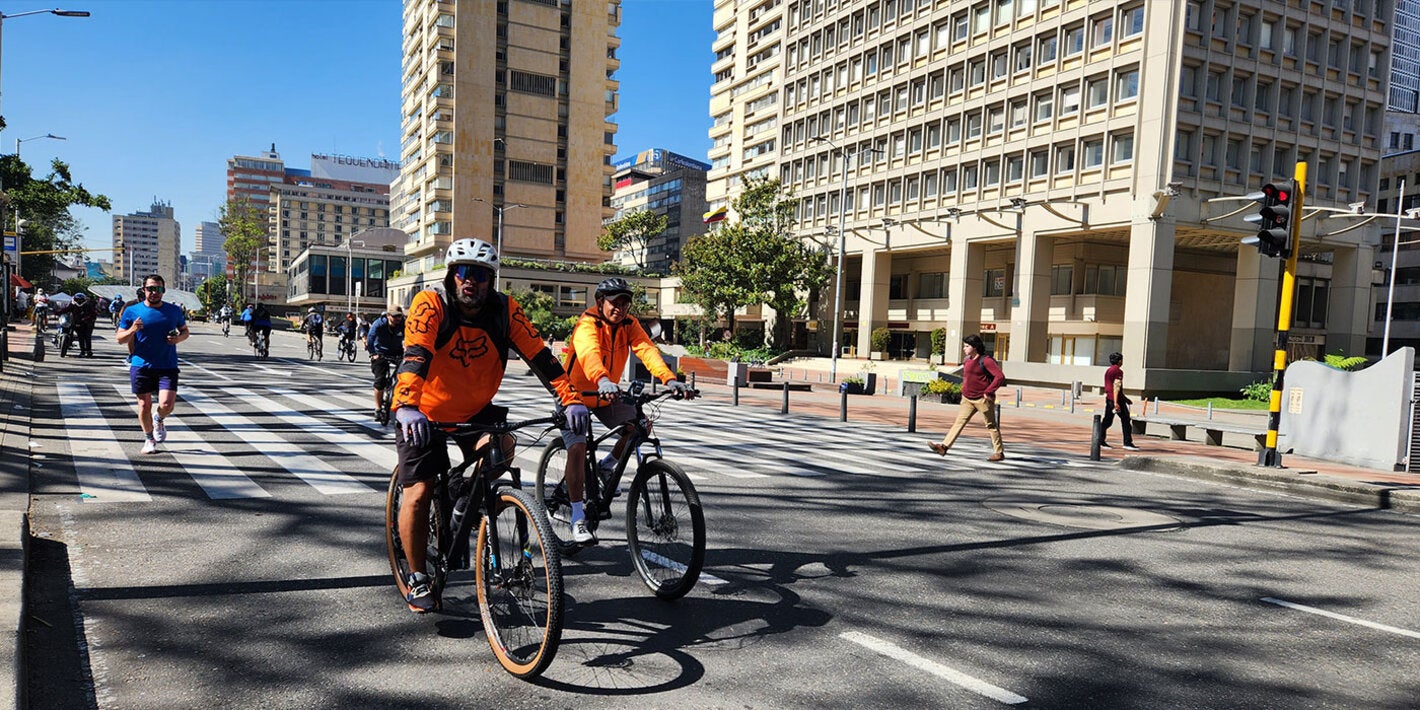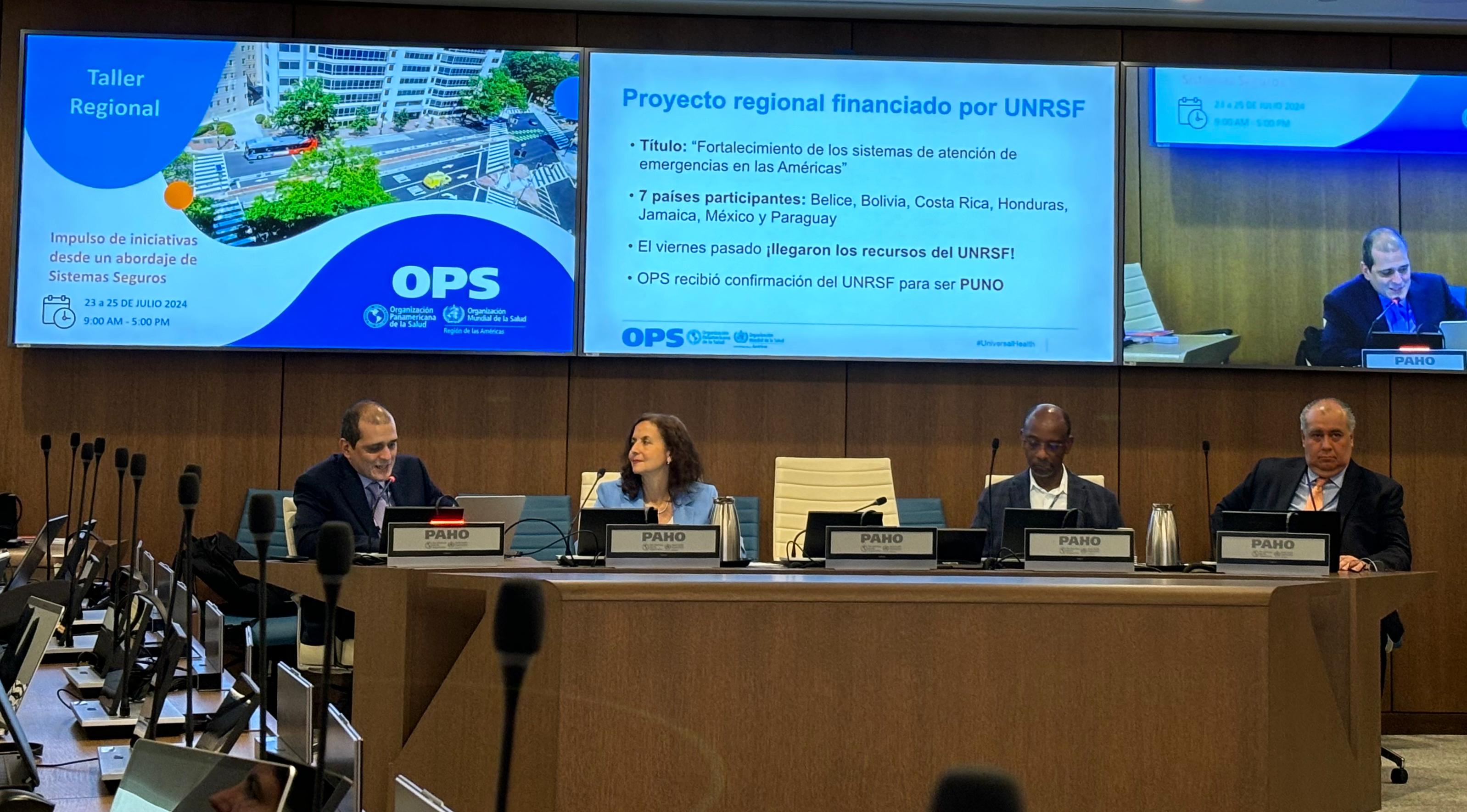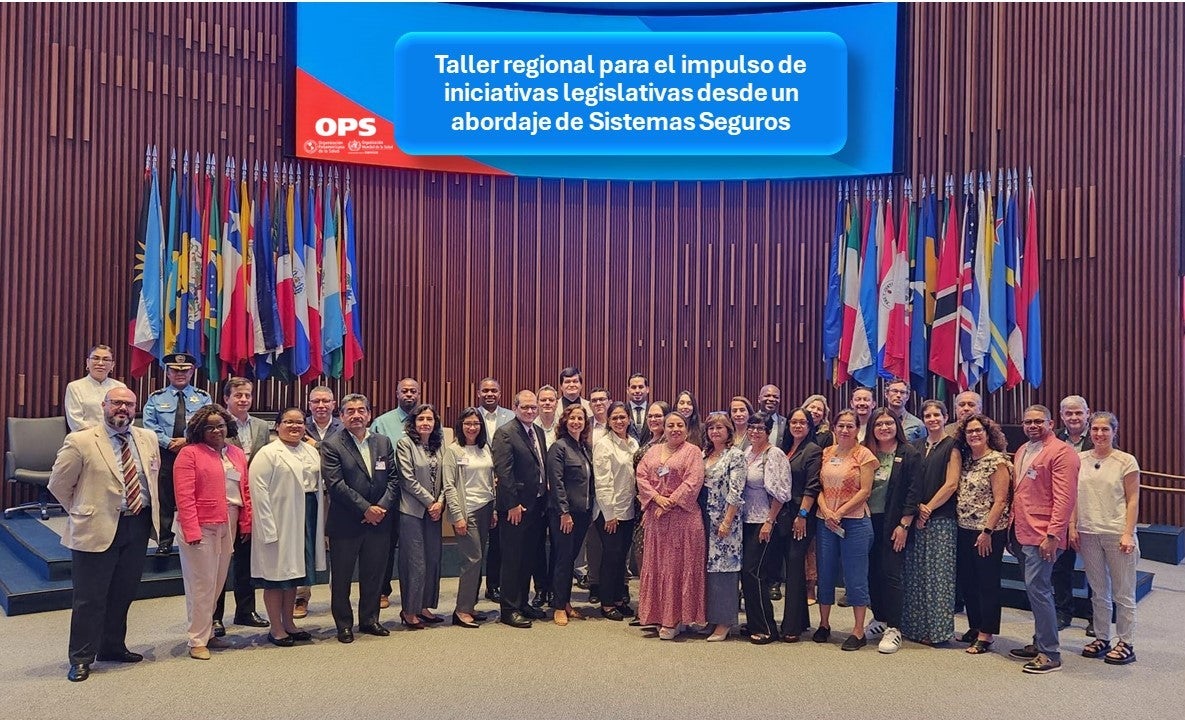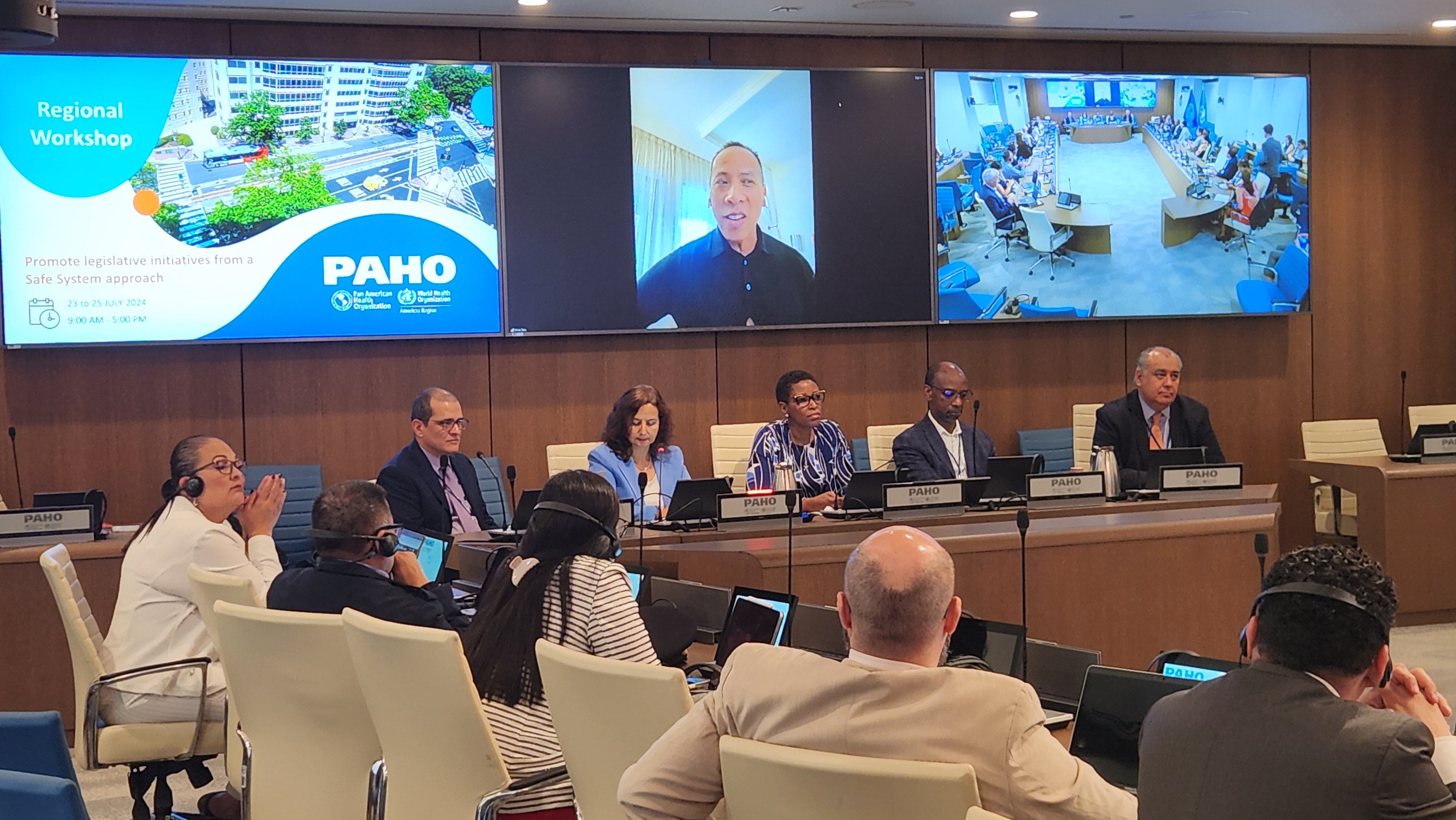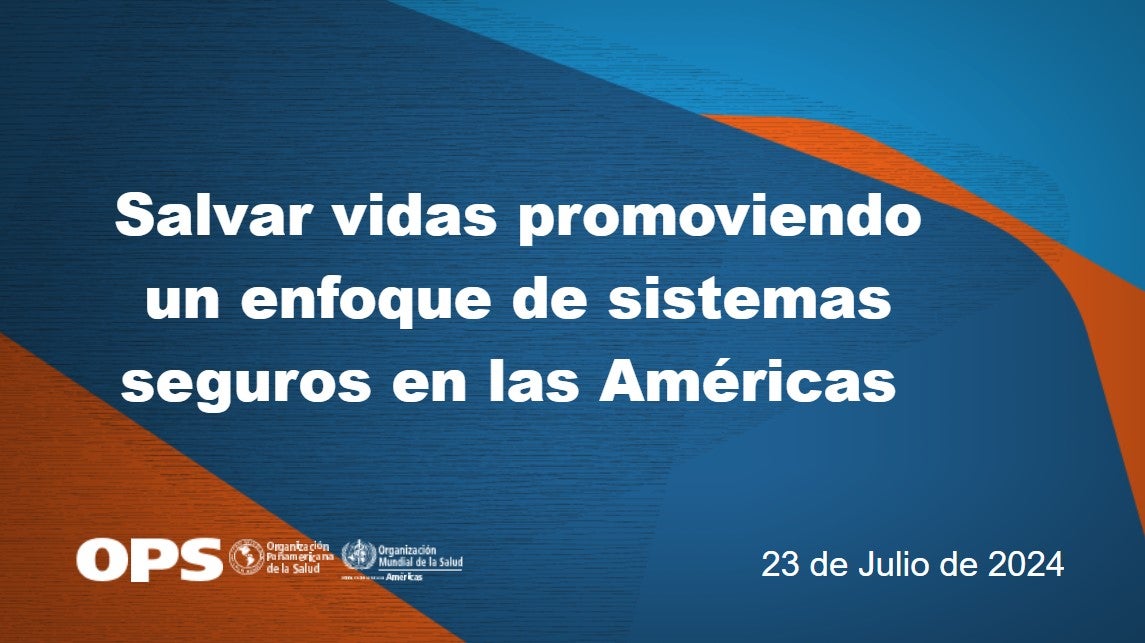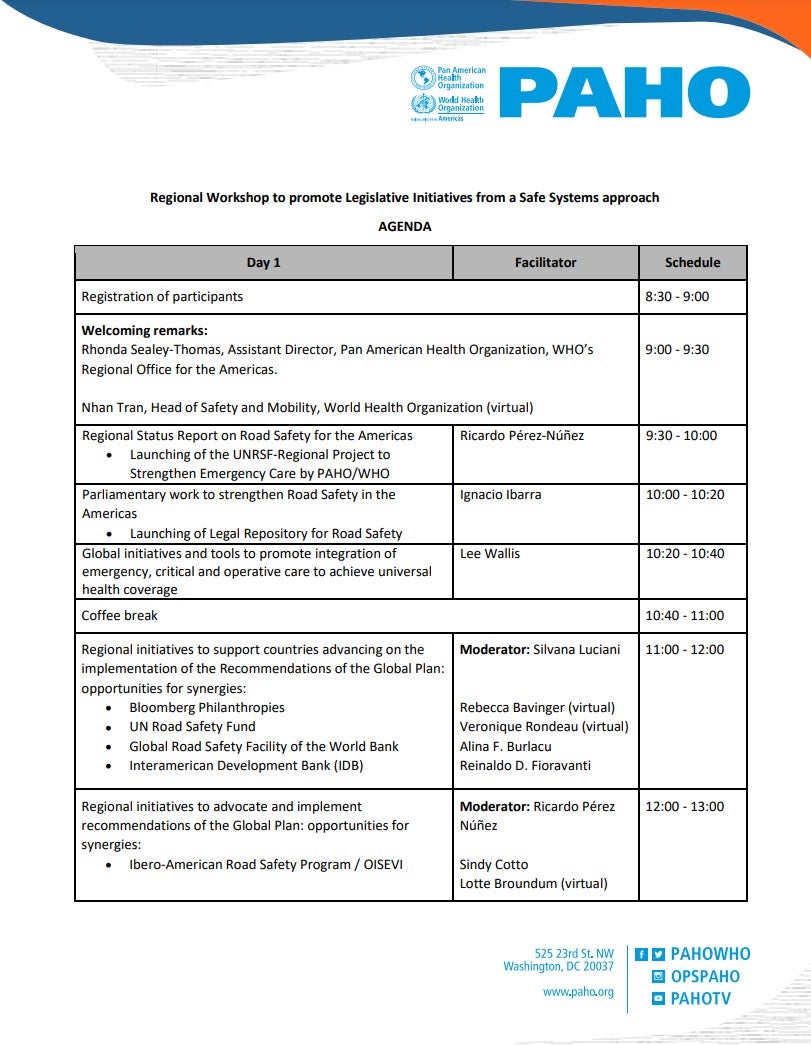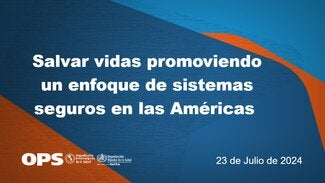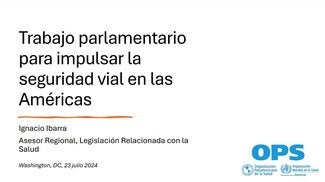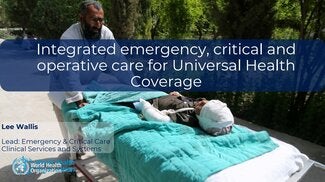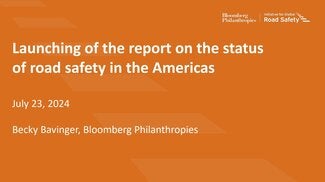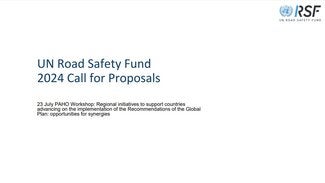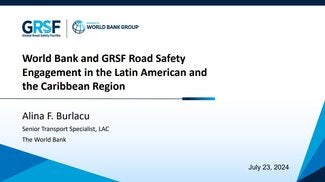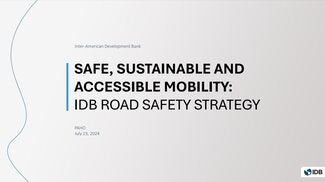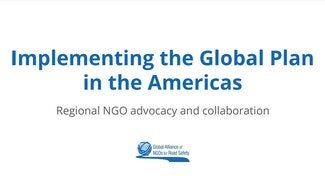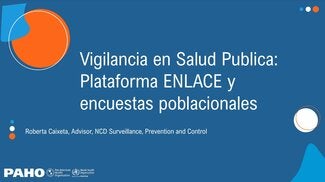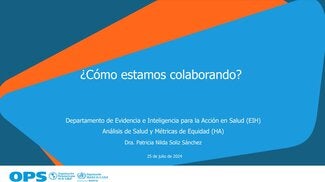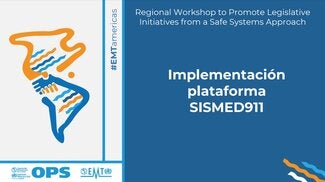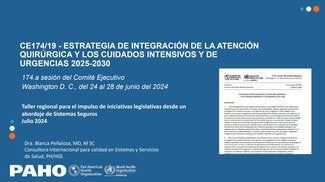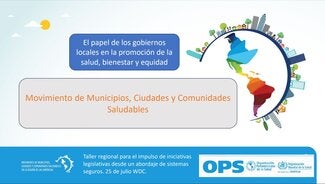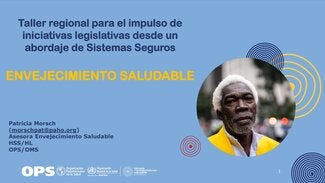The WHO and its Regional Offices were mandated by Member States to document national, regional, and global progress toward achieving a 50% reduction in road traffic deaths and serious injuries by 2030, as part of the implementation of the recommendations of the Global Plan for the Second Decade of Action for Road Safety. Consequently, in 2022 and 2023, a data collection process was initiated in 32 countries of the Region that decided to participate in the Fifth Global Status Report on Road Safety.
As part of the PAHO/WHO's commitment to supporting road safety efforts in the Americas, this workshop was held to present the analyzed data during the integration of the Regional Report, which will be titled: “Saving Lives by Promoting a Safe Road Transport System Approach in the Americas” The title seeks to emphasize that road safety efforts must prevent people from continuing to die on the roads, and this will only be achieved through a safe systems approach.
WORKSHOP SCOPE
Dr. Rhonda Sealey Thomas, Assistant Director of the Pan American Health Organization/WHO Regional Office for the Americas, attended the preliminary launch of the Regional Report data and delivered a welcome message to the participants. Dr. Nhan Tran, Head of the WHO Safety and Mobility Unit, also delivered a welcome message, highlighting the upcoming Fifth Ministerial Meeting to be held in Morocco in February 2025, emphasizing the importance of having strong regional representation.
Dr. Ignacio Ibarra, Regional Advisor on Health-Related Legislation and Technical Secretary of the Parliamentary Network for Road Safety in the Americas, shared with participants the progress on developing a Regional Repository of road safety-related legislation. This is a key issue that has the potential to support parliamentary work in the region.
In his speech, Dr. Lee Wallis, Head of Emergency Care in the Clinical Services and Systems Unit of the WHO Department of Integrated Health Services, highlighted various mandates received within the framework of the World Health Assembly and the tools being developed by WHO to support the strengthening and integration of emergency care, critical care, and surgical services. He also commented on some of the progress that has been coordinated in the Region.
Participants from Bloomberg Philanthropies (Rebecca Bavinger), the United Nations Road Safety Fund (Veronique Rondeau), the World Bank (Alina F. Burlacu), and the Inter-American Development Bank (Reinaldo D. Fioravanti) had the opportunity to present the work they are doing in various countries of the Region and to reflect on the opportunities they foresee to support the efforts in the Region.
The President of the Ibero-American Road Safety Program/OISEVI, Lic. Sindy Coto, along with representatives of Civil Society Organizations such as the Global Alliance of NGOs for Road Safety (Lotte Broundum), the Ibero-American Federation of Victims’ Associations Against Road Violence (Alma Chavez), and Movidana and Youth for Road Safety (YOURS: Pamela Naranjo), enriched the discussion of the regional report by providing their perspectives during their participation.
Over 40 people who participated in person at this launch were representatives of Parliaments, Ministries of Health, Transport and Security, as well as Civil Society Organizations, from 14 countries in the Region: Argentina, Belize, Bolivia, Brazil, Colombia, Costa Rica, El Salvador, Ecuador, Guatemala, Honduras, Jamaica, Mexico, Paraguay, and the Dominican Republic. After the launch of the report, a regional workshop was held to promote legislative initiatives from a safe systems approach, facilitated by personnel from all three levels of the Organization (WHO colleagues from headquarters in Geneva, the Regional Office in Washington, D.C., and the PAHO/WHO Offices in the participating countries), with the invaluable support of colleagues from GHAI (Global Health Advocacy Incubator) and GRSP (Global Road Safety Partnership), members of the consortium of the Bloomberg Philanthropies Initiative for Global Road Safety.
During the workshop, gaps were identified in the implementation of the recommendations of the Global Plan in the participating countries, but also the opportunities that arise to advance multi-country road safety initiatives aimed at strengthening the implementation of laws and regulations aligned with United Nations legal instruments and best practices (i.e., key risk behaviors, motor vehicle safety standards, and laws adopting WHO standards for effective emergency care). This includes promoting sustainable internal funding for road safety.
At the end of the workshop, various regional initiatives were identified, which, on behalf of the countries, will be developed for submission to the new call of the United Nations Road Safety Fund (UNRSF), opening in September 2024.
The workshop concluded with the participation of advisors from other areas and programs within PAHO, who had the opportunity to identify opportunities to promote interprogrammatic synergies to strengthen the technical cooperation provided to the countries of the Region. This includes areas such as epidemiological surveillance, analysis of vital statistics and ICD-1 classification systems, quality of care and primary health care, implementation of the Emergency Medical Information System (or SISMED-911) platform, urban health and health promotion, social and commercial determinants of health, and healthy aging.
AGENDA
PRESENTATIONS

